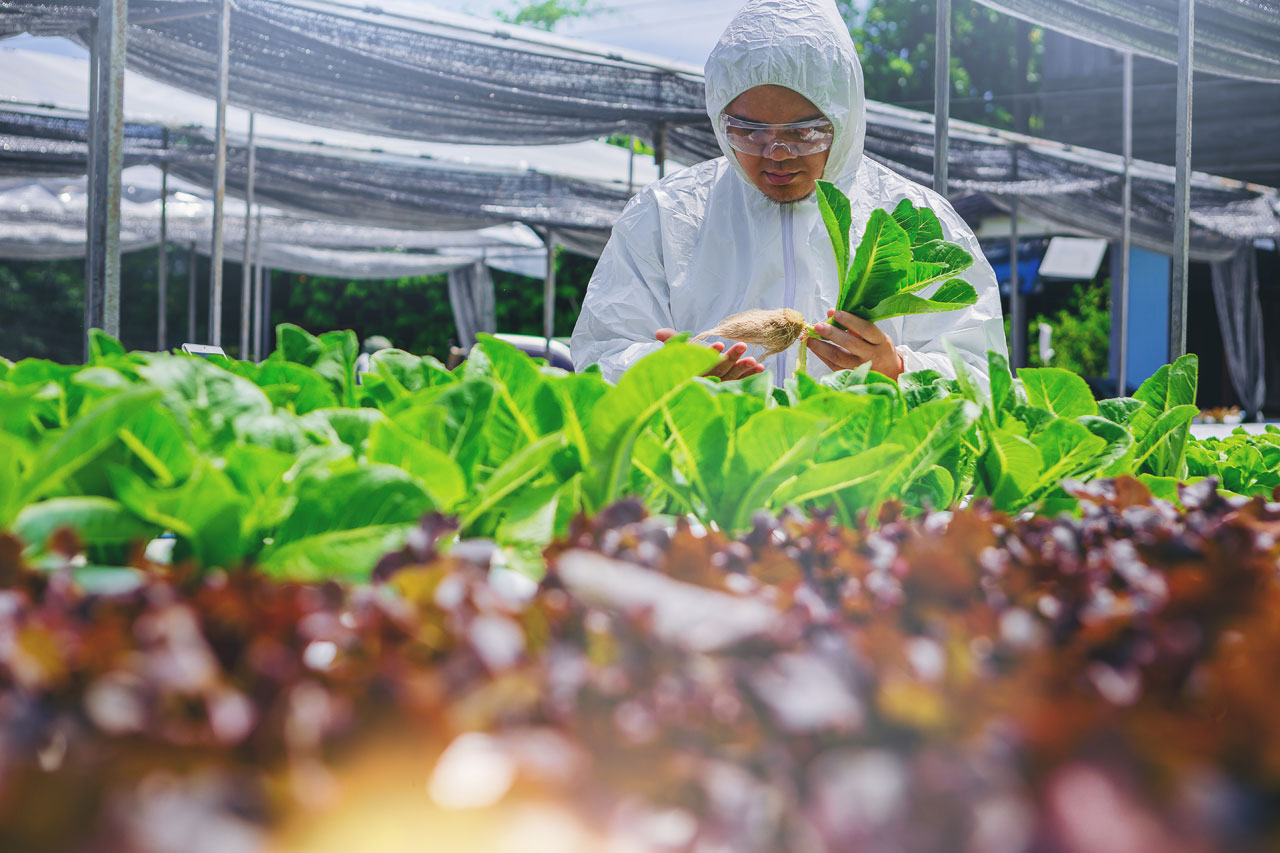On March 19 a California court delivered a gut punch to the USDA organic label, betraying the trust of consumers and demoralizing authentic organic farmers. The ruling announced by the Northern California federal district court allows soilless produce operations to remain certified organic under the law. The lawsuit filed last year by the Center for Food Safety (CFS), in collaboration with eight authentic organic farmers and two ethical certifiers, challenged the USDA’s denial of CFS’s 2019 petition to prohibit organic certification for hydroponic enterprises that neither use nor build soil.
The court’s recent decision defers to the USDA’s interpretation of the Organic Foods Production Act (OFPA), reasoning that soilless operations are allowable because OFPA does not specifically prohibit hydroponic and container-based operations. As a result, hydroponic and container-based operations can continue carrying the USDA organic seal—despite law that mandates soil-fertility requirements for organic crop producers.
The Cornucopia Institute and many others have been embroiled in a heated debate with the USDA’s National Organic Program (NOP) over the issue for several years. Many hydroponic and container-grown products—primarily berries, cucumbers, and tomatoes—currently carry the USDA organic seal. Because the NOP has not created standards for soilless or greenhouse production, individual certifiers determine for themselves which of the existing rules apply to hydroponic operations. Some certifiers have chosen not to certify soilless operations at all.
Cornucopia has written extensively about the role of certifiers in this debacle. Certifiers are tasked with ensuring that organic operations meet the organic rules and guidelines—but certifiers do not always agree on the meaning of regulatory language and may interpret compliance in different ways. According to a 2020 blind survey by the National Organic Coalition, Organic Farmers Association, and the Accredited Certifiers Association, certifiers disagree about whether the three-year transition period is even necessary when crops are not grown in the soil.
The transition period is foundational to the organic program. Cropland must be free of prohibited substances (such as synthetic herbicides, rodenticides, and insecticides) for at least three years before it is eligible to be certified organic. Depending on the interpretation of the certifying agent, soilless, indoor “farms” may not be held accountable to this regulation. In other words, a conventional hydroponic operator may be able to simply replace the inputs in their system with certified organic nutrients to achieve organic certification.
This allowance of soilless production in the organic program punctures the very heart of the legal and philosophical principles foundational to organic agriculture. Legally, OFPA requires crop farmers to create organic system plans designed to foster soil fertility, and the organic regulations specifically require producers to implement practices that “maintain or improve the physical, chemical, and biological condition of the soil (§205.203a).” Philosophically, organic agriculture has always been premised on the health of the soil.
In authentic organic systems, the soil plays a crucial role in the carbon and water cycles. Cover crops, compost, minerals, and grazing animals can improve organic matter and biodiversity in the soil. Soilless systems such as hydroponics cannot measure up to the ecological complexity of authentic organic agriculture.
Additionally, emerging science suggests that we do not fully comprehend the complex processes and relationships in the soil that produce the nutrient value of our food, nor are we assured that current nutrition research can account for all of the enzymes, metabolites, and other constituents our bodies require for health.
Cornucopia does not believe that a hydroponic operation is capable of reproducing the nutrient value of food grown in healthful soil. Without soil, plastic tubing, trays and other containers become the vehicles for nutrients that are mined, gathered, shipped, and then delivered directly to plants’ roots. Biology takes a backseat to efficiency. And you can taste the difference!
Allowing produce grown in these systems to carry the USDA organic seal threatens consumer trust in the label. As hydroponic factory farming continues to expand and ignite further debate and action, Cornucopia will keep an ear to the ground. This year we will broaden our market research and engage consumers in marketplace activism. Stay tuned for ways to get involved, including helping us update our Guide to Avoiding Soilless Organic Produce, which allows you to identify and avoid soilless brands carrying the USDA organic seal.
Update: Read our Action Alert and learn how your intel in the grocery store and co-op aisles can inform our market research.


